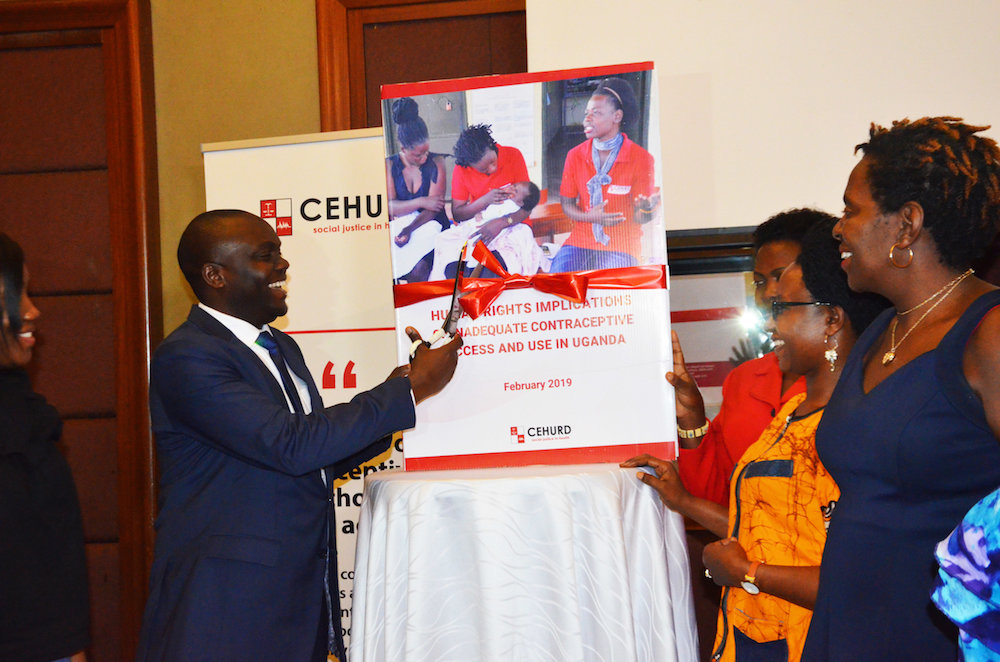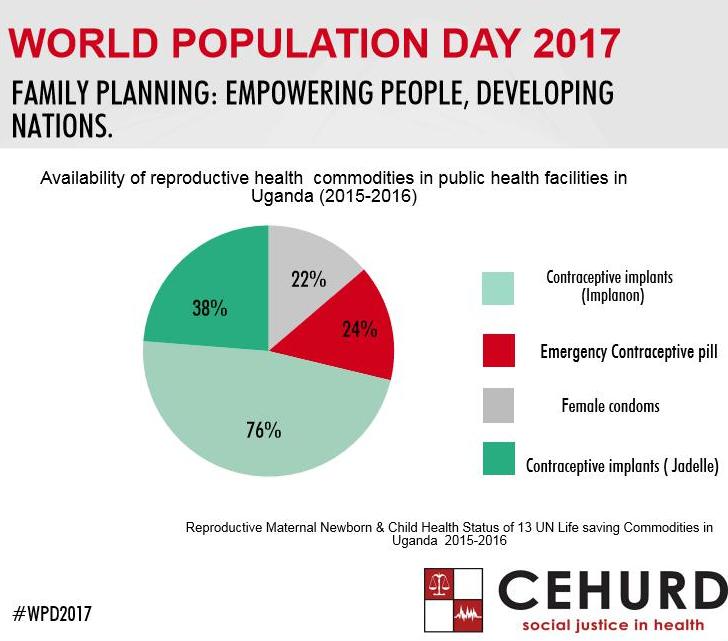Family planning services and contraceptives are critical in the prevention of unintended pregnancies, miscarriages, unsafe abortions and maternal deaths. Henceforth, improving the health of women and the overall well-being of families. There has been laudable effort from Government of Uganda, with support from development partners and civil society actors to ensure access to family planning goods and services.
However, in spite of these efforts, contraceptive access and use in Uganda remains a major challenge. To understand the major challenges, CEHURD, in partnership with Center for Reproductive Rights undertook a fact-finding exercise to collect experiences from women, men, service providers, policy makers and other relevant stakeholders with provision, access and utilization of contraceptives. The report summarized the key findings and identified the gaps highlighting what communities go through while accessing and using contraceptives as indicated below;
To amplify the findings as share the community findings, CEHURD held dissemination workshop involving various stake holders including; policy makers, development partners, civil society organisations, Justice Law and Order Sector, Ministry of Health, Local Governments and the communities. This also marked the launch of the Contraceptive access and use in uganda. The event had an aspect of experience sharing from the communities, learning from the experts who shared experiences as service providers, the policy makers who clarified on the budgeting process and parliaments commitiment on the issues of health and the Ministry of Health technocrats who responded on issues of policy and guidelines.
Key highlights from the event
- Parliament is progressively though at a slow pace committing itself to the Abuja deceleration 2015 in increasing the health budget. The health budget has increased from 7.5 in 2018 percent to 8 percent allocation in 2019, with the current overall budget of 2 trillion where 16 billion has been allocated for reproductive health services and commodities.
- MoH has come up with the human rights approach and developed guidelines to help them implement their work without violating people rights.
- Challenge within the law that does not cater for the minors and clearly indicates the consent age as 18 years where health workers are not allowed to give services to people who have not consented.
- Unmet need of married women is at 28 percent and 32 percent for sexually active unmarried women while the contraceptive prevalence rate is at 38 percent for married women and 51 percent for sexually active unmarried women, with 52 percent of un planned pregnancy in Uganda which has led to 1 in 4 girls having a child or pregnant with first child at 19 years.
- Contraceptive use and accessibility is determined by working hours yet the peak hours are during public holidays, evenings, night hours and weekends as most of the public facilities are always closed yet it’s when the clients need the services most.
The report was jointly launched by the Executive Director CEHURD, Hon Members of Parliament, Ministry of Health, Center for Reproductive Health Rights country representatives and Uganda Medical Association President. The report was handed to the Ministry of Health for referencing and also respond to the recommendations.
By Angella and Chris


